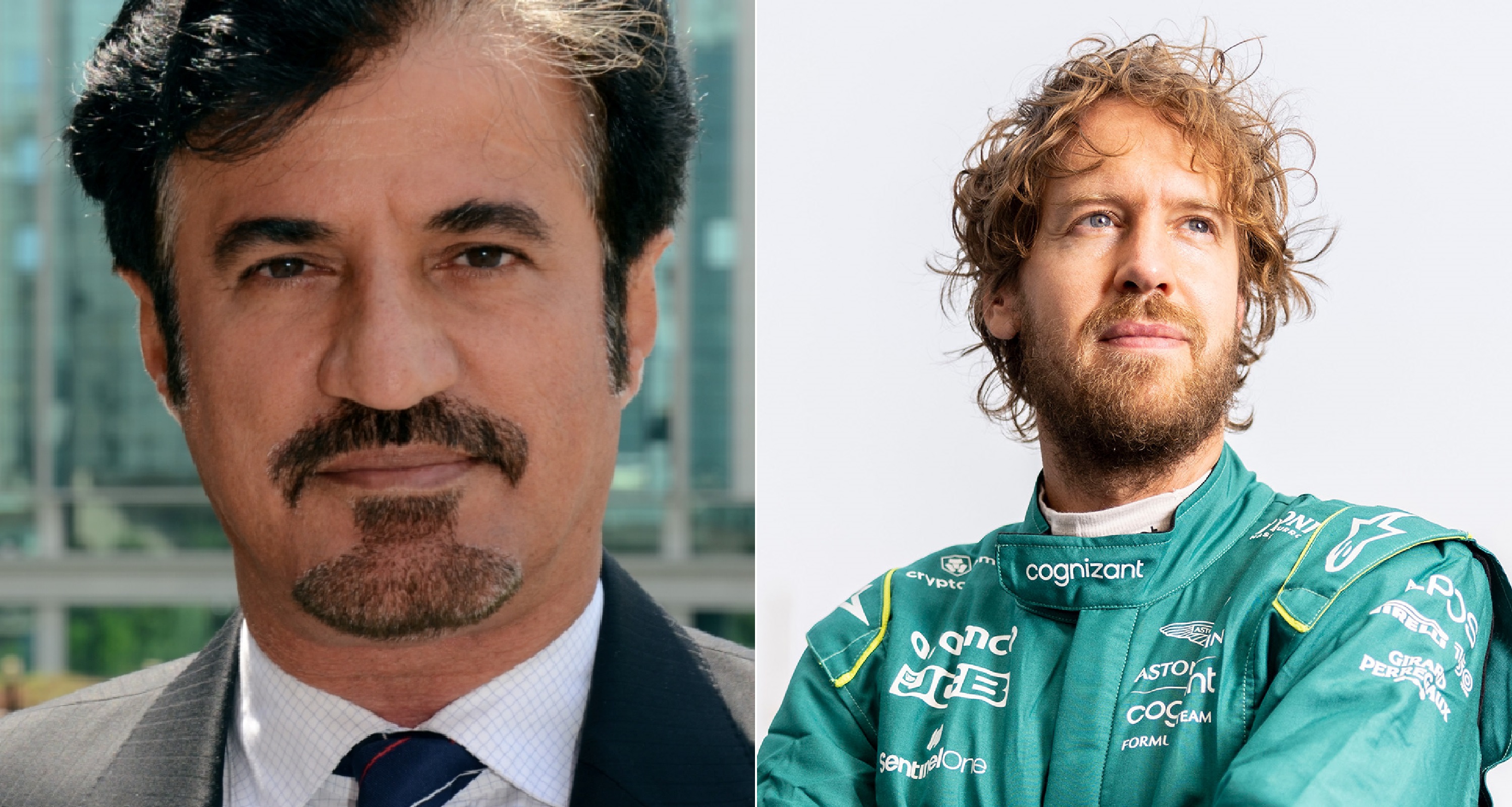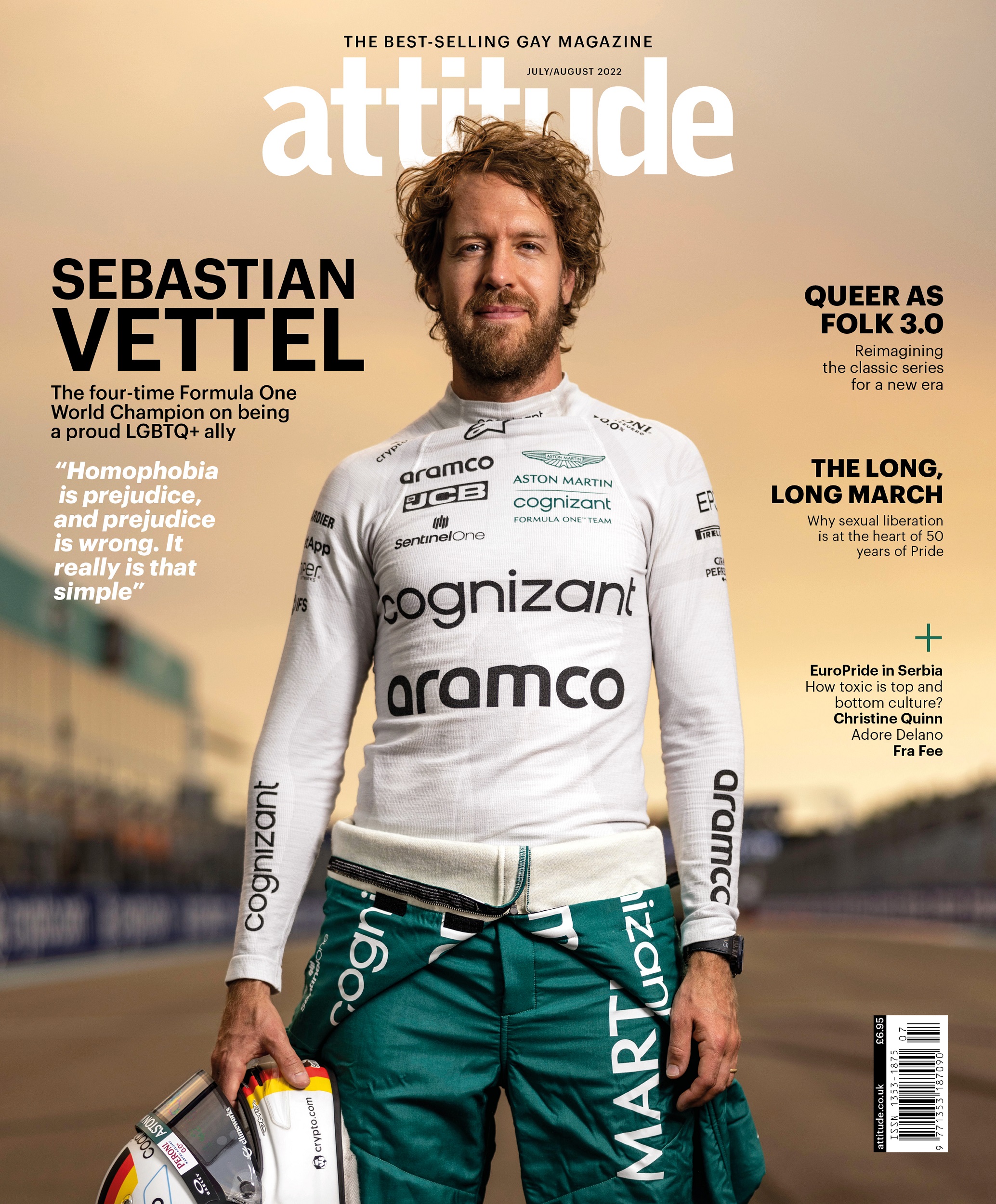Formula One boss slams drivers for ‘imposing beliefs’ on LGBTQ rights, human rights and mental health
FIA President Mohammed Ben Sulayem dismissively accused LGBTQ ally Sebastian Vettel of driving "a rainbow bicycle."
By Will Stroude

Words: Darren Styles; Images: Wiki Commons (left) and Glenn Dunbar
In a week when the head of Formula One’s governing body, FIA President Mohammed Ben Sulayem, said he did not want its drivers “imposing their beliefs upon the sport”, four-time World Champion Sebastian Vettel has become the first F1 driver ever to appear on the cover of Attitude.
Vettel’s previous expressions of support as an ally for the LGBTQ community – in Hungary last year after a law was passed banning the promotion of homosexuality, and later in Saudi Arabia where gay men face imprisonment – have clearly irritated Ben Sulayem, as was evident from an interview granted to Grandprix247’s Agnes Carlier at the recent Monaco Grand Prix.
Responding to a question regarding what Formula One should not be, he offered: “Niki Lauda and Alain Prost only cared about driving. Now, [Sebastian] Vettel drives a rainbow bicycle, Lewis [Hamilton] is passionate about human rights and [Lando] Norris addresses mental health. Everybody has the right to think. To me, it is about deciding whether we should impose our beliefs in something over the sport all the time.”
He goes on to explain, apparently oblivious to the contradiction, “I am from an Arabian culture. I am international and Muslim. I do not impose my beliefs on other people. No way! Never.”
View this post on Instagram
It would be too easy, perhaps, to connect Ben Sulayem’s United Arab Emirates operation to his apparent disdain for free expressions of support for LGBTQ people, human rights and a positive stance on mental health – topics you’d imagine should be a free hit in terms of enhancing and modernising the image of a sport he acknowledges is seen as “old.” But his ire at such things – together with an increasingly bizarre intent to stop Lewis Hamilton wearing jewellery (seriously) – bodes ill both for those within the sport and those who enjoy it.
But he’ll not enjoy Vettel’s Attitude interview.
Asked, as an LGBTQ ally, about expressing his values when racing in countries where LGBTQ rights aren’t recognised, the Aston Martin driver said: “Formula One will put on 22 races in 20 countries this year. As far as LGBTQ rights are concerned, there are some countries we visit that are tougher than others. We could refuse to race there – but what then? If we don’t race we’d be powerless to make any difference at all. But by racing in those countries and politely, but firmly, standing up for what’s important we can have a positive impact. Values and principles can’t stop at borders.”

F1 driver Sebastian Vettel appears on the cover of the Attitude July/August issue
He went on to outline his decision to speak out in Hungary ahead of last summer’s race, even if his rainbow commitments don’t yet extend to the Ben Sulayem’s promised bicycle: “I did it because I wanted to show that I didn’t, and wouldn’t, endorse the anti-LGBTQ legislation that had recently been enacted. I didn’t do it to be popular, but if LGBTQ people who had been upset by the legislation were encouraged to see that I’d stood up against it, obviously that’s pleasing to know. And perhaps more Formula One fans have begun to think about diversity and inclusivity because of the actions of some of us – and, if they have, I’m pleased. I’m happy and honoured to be your straight ally!”
While Ben Sulayem may not wish to have such expressions of allyship “imposed upon the sport” – especially ahead of this weekend’s Grand Prix in Azerbaijan, a country ranked by ILGA-Europe as the worst state (49 out of 49) in Europe for LGBTQ rights protection – he may wish to dwell on the notion that any President’s first job is to get elected. And coming out against those in the paddock that would speak for LGBTQ and human rights, or mental wellbeing, does not accord with the “international” persona he wishes to present. In fact, it reeks, somewhat, of somebody “imposing his beliefs”.
